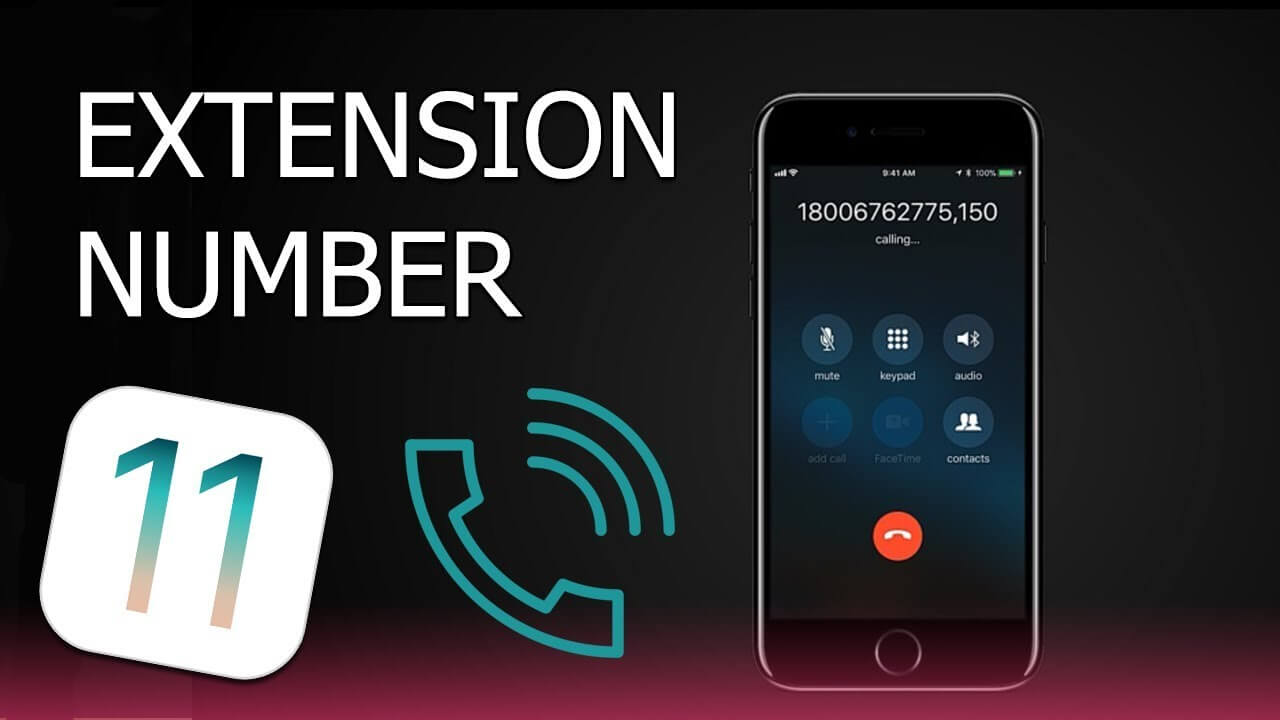Any business requires a reliable phone system that meets its specific needs. A consumer-focused phone line is inadequate as it lacks business-grade features such as a phone directory, call transfer, and virtual extensions. As a company grows, so do its communication needs. Each new employee needs their phone number and the ability to contact colleagues in other departments or locations.
Phone extensions allow all company members to connect with customers, making them essential for effective communication in larger companies. If you want to learn more about phone extensions and how to implement them in your business, this guide thoroughly examines the topic.
What Is A Phone Extension?
A phone extension is an additional number assigned to an employee, team, or department within a business. It is connected to the main business phone number and can reach different departments or employees. These extensions can make it easier for callers to reach the specific person or department they need, as they can be automatically routed to the correct destination.
With VoIP extensions, various routes and shortcuts are designed to save the caller and the business time. It means that when a client or caller wishes to contact a specific employee or department, they can do so quickly and easily using a phone extension.
How Does A Phone Extension Work?
Phone extension numbers were traditionally four digits long, such as 1002 or 2563. But with hosted phone service providers, it is possible to have three or 5-digit extension dialling and even shorter or longer extensions like 4 or 65. These extension numbers can be assigned to individual employees, teams, or departments within the organization. It allows for easy communication between different departments or divisions of the business, especially as the organization grows.
In addition, phone extensions work in conjunction with the auto-attendant feature for business lines. If a customer is unsure of the extension number they need to reach, the auto-attendant allows them to select the department they need, and the call will be forwarded to the correct extension. On the other hand, if a customer already knows the extension number, they can bypass the auto-attendant and dial the extension directly.
Business Vs Residential Phone Extension
Phone extensions have been a common feature in phone systems for a long time. However, they function differently in residential and business settings. In a residential line, an extension allows for multiple devices to be connected to the main number, allowing for calls to be answered from anywhere in the house.
However, it should be noted that there is only one line to the house, so when someone is on a call, no one else can call from another device.
In a business setting, phone extensions work differently. Organizations can purchase fewer lines than the total number of employees by sharing limited external lines through extensions. It is possible because employees will not be using their phones simultaneously.
For example, a company with ten employees may not need to purchase ten lines. Depending on their needs, they could get by with just 3-4 lines and phone extensions, as an employee using an extension will not occupy the line for everyone else.
How To Add Users And Extensions?
Adding or removing phone extensions in a VoIP system is a straightforward process. To add a new employee or extension, you can log into the online dashboard of your phone service provider, select the option to add a new user and assign a specific extension.
If you need to add an extension to an existing employee, you can edit their user account and add the desired extension. Even if employees move to a different location, their extension will still work.
Similarly, if you need to remove an extension or a user, you can easily delete them from the online dashboard. It can be helpful if an employee leaves the company or the business no longer needs as many extensions. Even if your provider does not charge extra for phone extensions, deleting unused ones is a good practice for easier manageability and organization.
Read More: Informational Tech Blog
How To Dial A Number With VoIP Extension?
Dialling a phone extension is similar to using a VoIP phone number, with the main difference being how internal and external calls are handled. Internal calls are made within the organization and do not incur long-distance charges, regardless of the physical location of the parties involved.
For example, two employees in different offices or countries can still communicate with each other by dialling their extensions. It is especially useful for teams that are spread out in various locations.
External calls are made from outside the organization to a specific endpoint within the company. These calls can also be dialled using extensions, usually added to the main business number.
If an auto-attendant feature is enabled, callers can be routed to the correct person, even if they do not know the specific extension. Not all employees within a business require a phone extension, with senior executives and receptionist roles typically requiring their numbers. Other department employees, such as technical support or accounts, can make do with extensions.
Conclusion
Phone extensions are essential for any business to communicate effectively and efficiently. They provide a short, additional number assigned to employees, teams or departments within a business and are connected to the main business phone number.
Phone extensions make it easier for callers to reach the specific person or department they need and can be automatically routed to the correct destination. They can be added or removed easily through the online dashboard of your phone service provider, and internal and external calls can be made using extensions.
Phone extensions are a cost-effective way for businesses to manage their communication needs and are an important tool for effective organizational communication.




